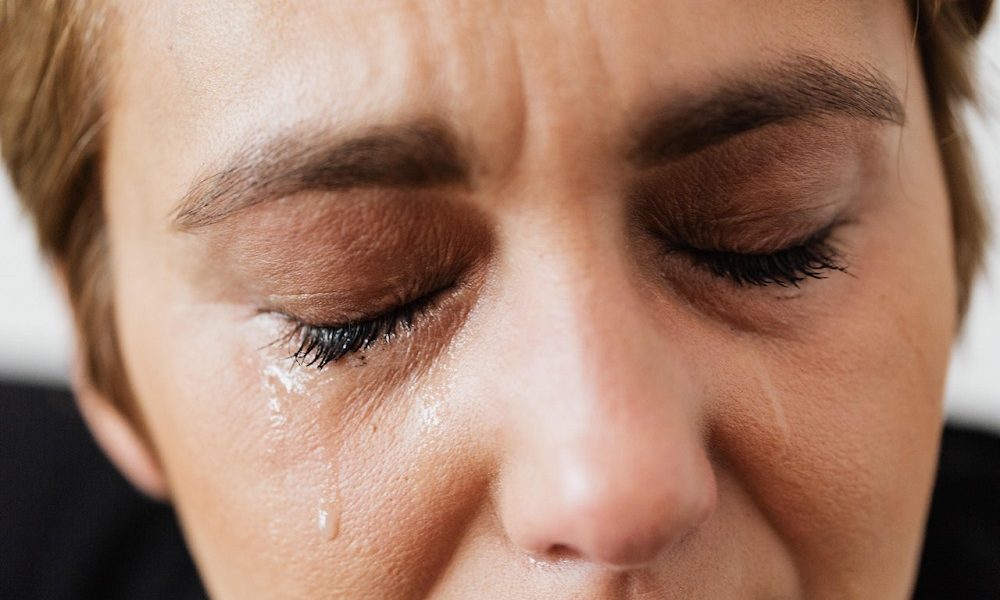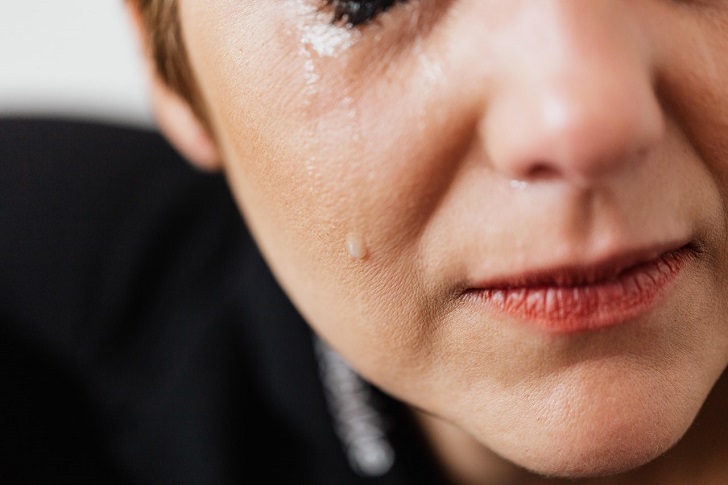
Why Do We Cry?

Tears. Those salty drops that well up in our eyes and trickle down our cheeks? They are more than a biological response. Crying is a universal human behavior that spans cultures, ages, and genders.
While it’s a common sight, the reasons behind why we cry are complex and multi-faceted. From moments of joy to episodes of sorrow, crying is a powerful expression of our emotions. Below, we will dive into the depths of this emotional phenomenon to explore why we shed tears.
The Evolutionary Lens
From an evolutionary standpoint, tears serve a practical purpose. They are a crucial part of our communication system, signaling to others that we are in need, distressed, or vulnerable.

Liza Summer/ Pexels | People vary in terms of how easily they cry and what triggers their tears.
In ancestral times, crying could attract attention and prompt assistance from the community, increasing the likelihood of survival, especially for infants and those in need of care. This primal instinct to signal distress has carried forward through generations, becoming ingrained in our social interactions.
Emotional Release Valve
Crying is often described as an emotional release valve. It’s a way for our bodies to discharge intense emotions that might otherwise overwhelm us. Whether it’s grief, frustration, anger, or even happiness, crying provides a physical outlet for these emotions, helping us to regain emotional equilibrium. Research has shown that crying can reduce stress and anxiety, offering relief and catharsis.
Stress and Toxin Relief
Beyond emotional release, crying may have some physiological benefits. Studies suggest that emotional tears, those shed in response to feelings, contain different chemical compositions than tears caused by eye irritation, such as cutting an onion.

Alex Green/ Pexels | Crying can offer a form of emotional catharsis, allowing individuals to process and come to terms with their feelings
Emotional tears contain higher stress hormones and toxins, implying that crying might play a role in purging the body of stress-related substances. This theory aligns with the idea that crying can restore emotional and physical well-being.
Social Bonding and Empathy
Crying is also a social behavior that fosters human connections. When we see someone cry, our instinct is to provide comfort and support. This response is deeply rooted in empathy—a fundamental human trait that enables us to understand and share the feelings of others. Therefore, crying strengthens interpersonal bonds, reinforces social cohesion, and promotes a sense of belonging.
Navigating Complex Emotions
Human emotions are intricate and sometimes difficult to articulate. Crying can serve as a tool for navigating this complexity. When we find ourselves at a loss for words to describe our feelings, tears step in to express what language might fail to convey. It’s as if crying provides an emotional shortcut, allowing us to communicate the depth of our emotions without needing to verbalize them.

Karolina Grabowska/ Pexels | Emotional tears contain higher levels of stress hormones, indicating that crying serves as a natural way for our bodies to release built-up stress and tension
Cultural and Gender Influences
Cultural norms and societal expectations also play a significant role in why we cry. Different cultures may encourage or discourage crying in certain situations. In some societies, shedding tears might be seen as a sign of vulnerability; in others, it could signify strength or authenticity.
Similarly, gender norms can influence how people perceive crying. Historically, crying has been associated with weakness and femininity, but societal attitudes are shifting, recognizing that crying is a natural and healthy emotional response for everyone.
The Mystery of Tears
While we have explored several potential reasons why we cry, tears remain a complex and enigmatic phenomenon. Scientists continue to study the intricate interplay of biological, psychological, and social factors contributing to this behavior. As we unlock the mysteries of tears, we gain a deeper understanding of human emotion and its intricate connections to our physical and social selves.
More in Mental Health
-
`
5 Reasons Why Dad’s Side of the Family Misses Out
Family bonds are intricate and multifaceted, often creating a unique tapestry of connections. However, many people notice a peculiar trend: stronger...
July 12, 2024 -
`
A Quick Guide on How to Get Short-Term Disability Approved for Anxiety and Depression
Living with anxiety or depression poses unique challenges, particularly in the workplace, where stress can exacerbate symptoms. For many, short-term disability...
July 5, 2024 -
`
Why Do People Feel Sleepy After Eating?
Is feeling sleepy after eating a sign of diabetes? Well, not directly. There are many reasons why you feel drowsy after...
June 20, 2024 -
`
What Is High-Functioning Depression? Symptoms and Treatment
High-functioning depression may not be a term you hear every day, but it’s a very real and challenging experience for many....
June 13, 2024 -
`
Kelly Clarkson’s Weight Loss Ozempic Journey – Debunking the Rumors
In a refreshing moment of transparency, Kelly Clarkson, the beloved singer and talk show host, sheds light on her remarkable weight...
June 3, 2024 -
`
What Is the Best Milk for Gut Health and Why?
In recent years, the milk section at the grocery store has expanded far beyond the traditional options. While cow’s milk has...
May 30, 2024 -
`
Do Dental Implants Hurt? Here’s All You Need to Know
When you hear “dental implants,” you might wince at the thought of pain. But do dental implants hurt as much as...
May 24, 2024 -
`
5 Key Differences Between A Psych Ward & A Mental Hospital
Curious about the differences between a psych ward and a mental hospital? You are not alone. With the mental health conversation...
May 16, 2024 -
`
It’s Official! “Selling Sunset’s” Christine Quinn & Husband Christian Dumontet Are Parting Ways
Have you ever found yourself unexpectedly engrossed in the personal lives of celebrities, especially when their stories take dramatic turns? Well,...
May 9, 2024










You must be logged in to post a comment Login